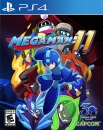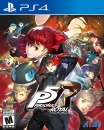I really don't know where the OP is coming from. None of the big 3 are actually doing hardly anything that is innovative on the software side. If I had to pick one though it would be Nintendo because of Ring Fit Adventure. Ring Fit Adventure is actually perpetuating a different kind of paradigm. That makes it innovative. Every cinematic game (especially if they are third person shooters) is doubling down on a very established paradigm. There is nothing innovative about these types of games.
The NES was the most innovative console, because it created or changed the most types of paradigms. Super Mario Bros revived the console market. That is a new paradigm. The Legend of Zelda was a new type of game that lead to the demise of arcades. That is a new paradigm. Duck Hunt created a whole genre of light gun games. That is a new paradigm. Gyromite...was not innovative though. It looked like it was doing the most radically different thing of all, but people really didn't want to play it and the R.O.B. type of game died off pretty quickly. You could call Gyromite "attempted innovation", but it wasn't successful innovation because it didn't create a new paradigm or change an existing one.
What innovative games have come out in the past few years? Not many. Ring Fit Adventure is the clearest candidate. After that, I guess I'd say Animal Crossing, because there are so many more people playing Life Sim games than ever before. We also have a lot of modern day equivalents of Gyromite like LABO and the various VR games. These are not really innovative so much as attempts at innovation. (Trying and failing is better than not trying though.) Cinematic games are not innovative in the slightest though. The real point of these games is to show off how powerful modern hardware is. They are the epitome of the status quo.
curl-6 bet me that PS5 + X|S sales would reach 56m before year end 2023 and he was right.
My Bet With curl-6
My Threads:
Master Thread, Game of the Year/Decade
Switch Will Be #1 All Time
Zelda Will Outsell Mario (Achieved)
How Much Will MH Rise sell?
My Bet With Metallox










































